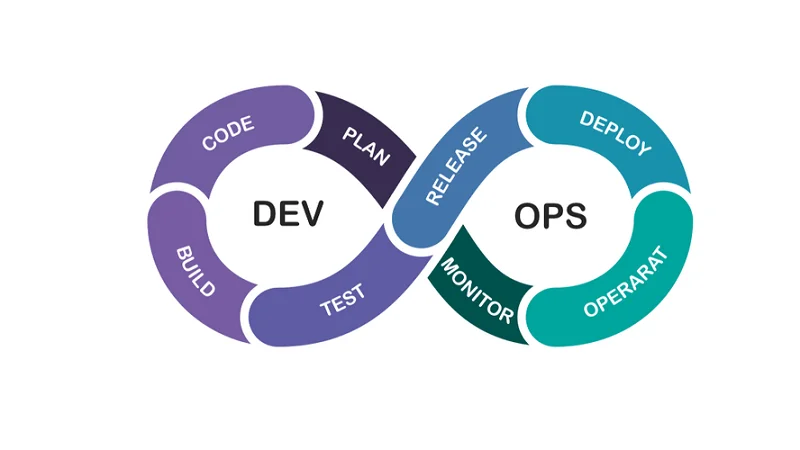Developers often find it challenging to integrate cross-platform apps into local settings, and the code of HTML5 cross-platform apps is complex because of callback-style programming. Native app development comes with heavy maintenance costs, which can cost you even more than the actual development costs. Native app development relies on different browsers and technologies like HTML5, JavaScript, and CSS, ensuring thorough data protection on the user’s end. Communication – Open communication ensures that developers understand project goals and requirements, preventing delays and additional costs. Transparency allows timely risk mitigation, fosters trust, and prevents miscommunication for better outcomes.

If your business needs to have an application that can run on different operating systems then the answer to your problems is cross-platform application development. Only a single cycle of development is required to create an app that runs on multiple platforms. It also reduces the dimension of the team you are using to develop the app. New technologies, Mobility, the Internet of Things, and eCommerce have changed the use of mobile applications. The framework works with existing code, is used by developers and organizations around the globe, and is free and open-source. Hybrid apps are better because they demand less maintenance and ensure a faster and hassle-free development lifecycle than native apps.
What is a Cross-Platform Mobile App?
Flutter is the most popular cross-platform mobile framework out of the three, as it’s used by 42% of software developers (for React and Xamarin, that’s 38% and 11%, respectively). Offers better User Experience – Since native apps are built for a specific system, they can use all of the main system’s features and capabilities. Thanks to this, native apps typically are much faster than cross-platform ones and have far fewer issues related to lagging, bugs, or app crashes. App design and user interface can also be polished to make the app easier to use and this way, more appealing to the users. Native apps can be as simple or as complex as you need, while cross-platform frameworks still have some restrictions.

You want to operate the app seamlessly across different platforms and don’t have sufficient time to build a cross-platform solution. Even in 2023, mobile apps are projected to generate more than 935 billion U.S. dollars in revenues via paid downloads and in-app advertising. Updated security – Native apps are built using the last platform’s security features and APIs, providing updated protection against malware and other security threats. Solid performance – Native apps don’t use a bridge or other compiler that can break performance or add an extra layer of complexity while developing. They also give developers direct access to features like cameras, accelerometers, and GPS. On the other hand, if you want to develop apps which focus on a broader user base and are developed in the most cost & time effective way, cross-platform apps would be best bet.
How to Choose Between Native and Cross-Platform Development – Factor-wise Differentiation
For iOS apps meanwhile, native app developers would instead use Swift or Objective-C and applications such as AppCode, Xcode, or Atom. Thus, if you want to build a native app that works well on both platforms, you would have to create two different apps. Such a solution usually requires separate teams https://www.globalcloudteam.com/ of developers for both technologies. This, in turn, extends the duration of the development process and increases its cost, which is a significant drawback of the native solution. Just like there is no silver bullet that solves all problems, no app development framework is suitable for each project.
- If you want to develop a stable, reliable application with the best performance.
- Native apps can be as simple or as complex as you need, while cross-platform frameworks still have some restrictions.
- We offer all the necessary expertise to design, build and launch mobile & web apps.
- As you probably know already, Android and iOS are the two major mobile operating systems in use today.
- If you require access to specific native features or have stringent performance requirements, native development may be the better choice.
This results in enhanced performance and the ability to leverage platform-specific functionalities, ensuring a seamless user experience. Cross-platform frameworks often provide access to a subset of native features and APIs. While they cover common functionalities, there may be limitations in accessing advanced or platform-specific features.
XCode Pros and Cons
Cross-platform mobile technologies are developed by third-party vendors. However, beyond sheer power, being able to run a single code base on several operating systems can be game-changing in many circumstances. For example, even with non-native platforms such as Flutter or React Native, it’s impossible to edit storyboards without XCode. Among other development tools, a JDK includes the Java Runtime Environment , a code interpreter , and a compiler . However, when business owners decide to go mobile, the major challenge they often encounter is choosing the right mobile technology. Since this process involves multiple OS, engineers have to update two separate platforms.
Hybrid mobile apps are web apps wrapped into native layers to work on mobile devices. Cross-platform apps can work on multiple platforms using a single codebase. Many frameworks and programming languages can be used to develop cross-platform applications. This process of app development involves a particular set of programming languages and frameworks exclusively for a single platform.
Ease of development: Native or cross-platform, which app is easier to develop?
It consumes significantly more time to develop a native app than its cross-platform counterpart does. There’s also no chance to repurpose the native code of one operating system for another, resulting in slower development. Additionally, it also becomes easier for developers to make full use of all sophisticated functionalities, such as complex networking, memory management, and more. Thus, looking at the choice of technology through the prism of the industry in which you operate may be an additional clue. Some industries are more demanding in terms of the complexity of mobile applications.

If you’d like to learn more about web application speed and performance optimization, we’ve got just the right article about it. Overall, native apps are the best choice when rich functionality is required. Native development allows creating complex and well-performing apps that provide interactive UX, are easily updated and scalable. The cross-platform development approach helps access a large number of software engineers.
have a projectfor US?
Building one app that works on all platforms is generally faster than building a separate one for each. But while native cross-platform frameworks have come a long way in accessing device-specific features, they can’t leverage all the functions native development can. Choosing a development approach for your app is among the first and most important decisions to make. And when it comes time for development, no topic is more polarizing than cross-platform app development vs. native. Native apps are optimized for their specific platforms, delivering high performance and responsiveness.
Some technologies, like Kotlin Multiplatform Mobile, allow you to write and share the app’s business logic between Android and iOS platforms. The largest part of mobile app development costs is typically the salary android app developer of personnel. If you plan to hire a permanent team, the following charts will provide an idea of the approximate salary ranges for Flutter and React Native developers in the USA and UK as of January 2022.
You should choose cross-platform mobile app development if:
However, companies are usually concerned about the high cost of native app development, as they need to run parallel developments for both platforms. In fact, according toCustomerThink.com, a web based on IT business knowledge around the world, React Native is considered the most effective platform for mobile app development. A native app is one that is developed using the language of choice of a given operating system. It’s the traditional way to build apps where Android apps are built using Java and iOS apps are developed using Swift or Objective-C. In that case, a hybrid app development framework is the ideal choice as it enables rapid development and launch of the app in the market comparatively at an early stage. One of the significant native app benefits is that native apps operate flawlessly, even without internet connectivity.



